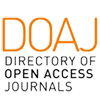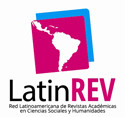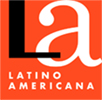About the Journal
Focus and Scope
The journal Literatura e Sociedade, linked to the Department of Literary Theory and Comparative Literature, of the School of Philosophy, Literature and Human Sciences of the University of São Paulo, since its first issue, published in 1996, has focused on promoting, welcoming and publishing essays, lectures, testimonials, translations, reviews and interviews on fundamental issues of the literary phenomenon.
The scope covers the theory of genres, the interface between literature and society, comparative literature, the relations between literature and other arts and areas of knowledge, the history of literature, great authors and great works, the methods and practices of literary criticism.
The submissions of articles by PhD researchers, from Brazil and abroad, linked to the area of Literary Theory and Comparative Literature or related areas, are welcomed in continuous flow.
The journal consists of four main sections:
1. Essays: section composed of essays, lectures and translations related to events and activities promoted by DTLLC;
2. Footnote: publishes articles, lectures and essays resulting from research of PhD professors, from Brazil and abroad, related to the areas of Literary Theory, Comparative Literature or the related areas;
3. Testimony: brings testimonies, interviews and memoirs of exemplary readers;
4. Translations and reviews: collects synopses and reviews of works from the area published in Brazil and abroad and unpublished translations.
Publication frequency
Semiannual.
Free Access Policy
This journal provides immediate open access to its content, following the principle that providing free scientific knowledge to the public enables greater democratization of knowledge worldwide.
Peer Review Process
As part of the submission process, authors who hold a PhD degree must verify the conformity of their article in relation to all items listed in the Guidelines for Authors, in the About tab, item Submissions.
The Editorial Board evaluates if the article fits in the thematic scope of the journal and a minimum quality within the editorial guidelines.
After internal screening, the submission is forwarded to external evaluation by reviewers specialized in the subject. The evaluation of contributions follows the double-blind standard, preserving the anonymity of both the author and the reviewer.
Each article is submitted to two or more reviewers (depending on specialization, to at least one), who can deny or accept the publication of the article, or request changes that may lead to publication, provided that the suggestions are met.
In all cases, the final decision rests with the Editorial Board.
Copyright | Ethics | Plagiarism
Literatura e Sociedade guarantees the copyright and publication rights to authors without restrictions.
This journal follows the guidelines of the Committee on Publications Ethics (COPE).
From no. 31/2020 onward, the similarity check is now done using Turnitin, with access provided by AGUIA.
License
CC BY-NC (non-commercial assignment)
Interactivity
To follow the news published by the Department of Literary Theory and Comparative Literature and publications of Literatura e Sociedade, access the Facebook page.
Journal history
Published since 1996, Literatura e Sociedade stands out as a means of disseminating essays, interviews, translations and creations related to the main issues of national and international debate in the area of Literary Theory and Comparative Literature, having renowned professors and researchers in its editorial board.
From no. 15/2011 onward the journal started to be published in Portal de Revistas da USP, with a documentary print run for libraries, authors and cultural institutions.
In 2014, the journal’s periodicity became semiannual.
Over the four-year period between 2013 and 2016, the journal was classified in the Qualis system as A2 in the area of History, B1 in the Interdisciplinary area and B2 in the area of Linguistics and Literature.
In 2020, the journal begins to integrate metric and metadata indexers, the first stage of the project to expand access to academic research in the areas of knowledge within its scope.
Support
SIBi/AGUIA
Indexing bases







